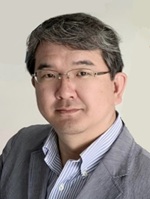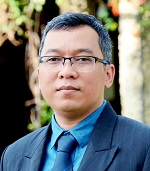Speakers
Keynote Speakers

Prof. Thomas Kang
Seoul National University, South Korea
Dr. Thomas Kang, P.E., is a Professor at Seoul National University (SNU). He earned his Ph.D. from the University of California, Los Angeles (UCLA) and his B.S. from SNU. Dr. Kang is a Fellow of the American Concrete Institute (ACI), the Post-Tensioning Institute (PTI), and the Korean Academy of Science and Technology (KAST), and is a member of the National Academy of Engineering of Korea (NAEK).
He has received numerous prestigious awards, including the T.Y. Lin Award from the American Society of Civil Engineers (ASCE) in 2025, the Kenneth B. Bondy Award for Most Meritorious Technical Paper from PTI (twice, in 2012 and 2023), the Wason Medal for Most Meritorious Paper from ACI in 2009, and the Martin P. Korn Award from the Precast/Prestressed Concrete Institute (PCI) in 2023.
Dr. Kang currently serves as Editor-in-Chief of the Journal of Wind & Structures and as Associate Editor of the PTI Journal. His research focuses on the design and behavior of concrete structures and structures incorporating recycled plastics, as well as dynamic effects on structures, including wind, seismic, shock, and fire.
Keynote Speech Title: Maximizing Carbon Neutrality and Circularity: Discovery of the Fifth Construction Element
Abstract. Throughout human history, construction has relied on four foundational materials: wood, stone, cement-based composites, and steel. While fibers, polymers, and alloys have found niche applications, none have matched the scale or structural significance of these traditional materials.
This keynote speech introduces a transformative innovation: recycled plastic blocks, envisioned as the fifth construction material redefining the evolution of the built environment. Produced from mixed waste plastics recovered from oceans, rivers, and landfills, these blocks are manufactured without complex sorting or chemical separation. The plastics are melted at temperatures up to 250 °C and cast into interlocking units. Despite this simple process, the blocks achieve exceptional mechanical performance, a compressive strength of 24 MPa (comparable to concrete) and a tensile strength of 10 MPa (four to five times higher than concrete), allowing them to serve as structural substitutes for reinforced concrete.
Engineered for landscape structures, retaining and seawalls, embankments, housing, and vertical enclosures, these blocks combine versatility, resilience, and environmental innovation. By converting plastic waste into durable construction components, they offer a practical pathway toward Maximizing Carbon Neutrality and Circularity in the global construction sector.
This pioneering material has been internationally recognized, earning a Silver Medal in the Advanced Engineering Infrastructure Solutions category at the 2025 Edison Awards and being named a CES Innovation Awards 2026 Honoree, underscoring its potential to redefine sustainable infrastructure. Beyond mitigating pollution and reducing the carbon footprint of conventional materials, the technology enables future remanufacturing and chemical upcycling, ensuring long-term adaptability and value retention.
Guided by the vision of a long-sought fifth element, this innovation marks a pivotal step toward a regenerative built environment—one that unites structural performance, ecological restoration, and design freedom in a single, enduring material system.

Dr.-Ing. Andry Widyowijatnoko, Bandung Institute of Technology, Indonesia
Dr.-Ing. Andry Widyowijatnoko is an architect, lecturer, and researcher at the School of Architecture, Planning, and Policy Development, Institut Teknologi Bandung, Indonesia. He has been working with bamboo since 1999, initially focusing on using bamboo for low-cost housing. In 2006, he was sponsored by the Environmental Bamboo Foundation to travel to Colombia to learn about bamboo construction techniques. This experience transformed his approach, leading him to promote bamboo by designing high-end buildings to increase its perceived value. One of his notable achievements is the award-winning Great Hall OBI, an oval bamboo structure with spans ranging from 20 to 30 meters. He earned his doctoral degree in 2012 from the Chair of Structures and Structural Design, Faculty of Architecture, RWTH Aachen University, Germany. His dissertation, titled Traditional and Innovative Joints in Bamboo Construction, focused on bamboo joints. It began with a classification of bamboo construction types, followed by a detailed classification of bamboo joints, and concluded with a proposal for customized lashing-based bamboo joints with exceptional tensile strength. The patented joint, known as the Bamboo Radial Compression Joint (Barcom Joint) and its variation with multi-knots, was applied to improve the renowned Three Mountain Building in Bali. He is regarded as a pioneer of tensegrity structures in Indonesia, combining them with bamboo construction. Drawing on his experience with tensegrity and reciprocal frames, he invented a new structural system called Rection (Reciprocal Tension). Unlike conventional reciprocal frames, where rigid elements touch, Rection features elements that lift each other reciprocally without direct contact, similar to tensegrity principles. Two temporary bamboo Rection domes were built: one at Indonesialand in 2016 with a 13-meter diameter, and another at ITB in 2017 with a 10-meter diameter, followed by additional structures in Lampung and Malang. To promote proper bamboo construction techniques to architecture students and professionals worldwide, he cofounded the AA-ITB BambooLab Course with John Naylor in 2018, a joint workshop between ITB and the AA School of Architecture, London. He has delivered numerous lectures and conducted hands-on workshops on bamboo construction across Asia, Australia, Europe, and the Americas.
Keynote Speech Title: From Simple Bamboo Structures to the Invention of a New Structural System: The Journey from Reciprocal Frame to Rection
Abstract. Bamboo has long been recognized as a sustainable material with good strength-toweight ratio, rapid renewability, and resilience under compression and tension. Its potential is particularly significant for architectural and structural applications in postdisaster reconstruction, where eNiciency, adaptability, and environmental compatibility are essential. This study examines the progressive exploration of bamboo structures, beginning with simple post-disaster shelter prototypes employing low-technology construction methods.
The investigation revisits the reciprocal frame (RF) as an ancient self-supporting system characterized by mutual interdependence among structural elements. A combination of literature review and field practice reinforced the proposition that there is a structural and conceptual correlation between the reciprocal frame and tensegrity structures, leading to the formulation that the reciprocal frame can be understood as a collapsed tensegrity. While tensegrity systems emerged in the 1940s, their conceptual application in Indonesia remained unknown until the early 2013.
Further structural experimentation led to the development of a new hybrid system, termed Rection, in 2016. The Rection system integrates key principles of both reciprocal and tensegrity structures, establishing a transitional typology with highly improved material eNiciency. Full-scale workshops and empirical testing demonstrate its applicability in bamboo construction, highlighting potential benefits in modular assembly, lightweight performance, and educational implementation. This practice contributes to the broader discourse on innovative structural systems derived from traditional materials, oNering insights into sustainable architectural practice and the evolution of spatial-structural design.